It’s a blisteringly hot summers day in Berlin when Trommel has the opportunity to speak with one of the hottest properties in house music – French producer Shonky.
“When I came back from OFF Week in Barcelona the other week, I went into my studio to produce. The A/C was broken and within five minutes, I was drenched in sweat.” Shonky says breaking into a signature smirk. It’s easy to see why. His studio lies in the heart of Kreuzberg, residing in the flat above his own personal living space. The room which encases the studio is full of vintage synthesizers, drum machines and enough cables to make your head spin.
The former Parisian has been on the music circuit for so long, DJing for over 20 years and producing for 18, that it’d be easy to chart his musical progression into one linear path. However, scratch a bit beneath the surface and you’ll encounter an eccentric musician who’s taken as many different paths as he’s allowed himself to, all whilst exploring deep into the depths of what may or may not be possible within electronic music.
During our conversation, Shonky’s words often trail off as he swivels on his chair to start twisting oscillators and programme drum machines. It’s clear he’s more comfortable actually showing how he produces in his studio rather than trying to describe it. Even so, he manages to pass on knowledge and tips of music production with the casualness of a close friend. In this selected extract of our conversation, the Apollonia member talks about his early beginnings as a producer, his workflow, production techniques and so much more.
Hi Shonky, thanks for talking to Trommel. What have you been up to in your studio recently?
Hi guys, it’s a pleasure! In recent years I’ve been making a lot more music with analogue gears compared to before when it was more myself, my mouse and my computer whilst using samples and plug-ins. It’s not that my previous method was not making music, of course it is. However, working with analogue gears feels far a lot more enjoyable and that’s allowed me to get more pleasure out of my studio process. I’m not saying it’s better for my music but I just enjoy the overall process more.
I was happy before of course, but back then I was constantly expecting results but now I expect a little bit less. I’ve found a method of working, I come into the studio and when I leave the studio, I have at least one track. It doesn’t matter if it’s good or not, I can use it or not, but I have one track. Then afterwards, I can always re-touch the mix, I can always re-touch the arrangement but the idea for the track is there.
What I realised is that if I work on any given day, then my vibe or my mood decides the groove and overall approach to the track, and it may be different the next day. I might not feel like that again, so for me, it’s one day and one track.
You spoke a bit about getting pleasure from your studio process. Is that linked to your production break from 2012 – 2016?
Not particularly. Well, we [Shonky, Dan Ghenacia, Dyed Soundorom] launched the Apollonia label in 2012 and we also did the album at the end of 2013. I started to spend the whole season in Ibiza as well so I didn’t have a studio and I spent less time in Berlin, where my studio and all my gears are. I would also say I wasn’t in the best mood to make music and I wasn’t feeling particularly inspired.
To be honest, I wasn’t sure how to improve my production skills and I was getting a bit bored in the studio. At this point, I was starting to use fewer samples after a couple of years of working with them. It was a culmination of a few things I think, but not one reason in particular.
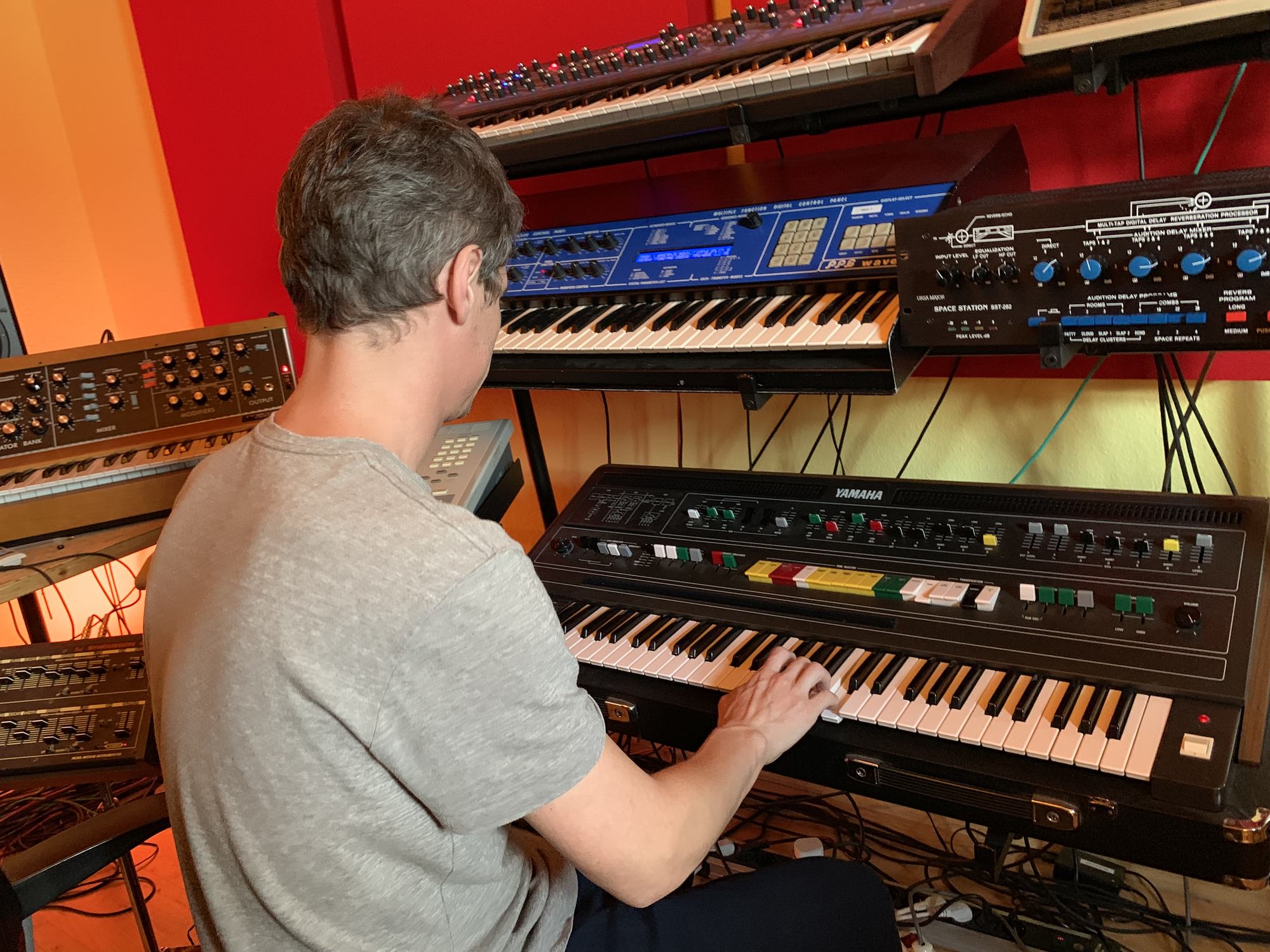
I assume like most people, DJing came first and then you got into production. What’s your story with the relationship between the two?
Well, I started to DJ in ’98 and at the time, I didn’t know anything about production but quickly I knew I wanted to get involved in it. It was always a hobby for me to DJ whilst I was studying mathematics but nothing really full-on. I wanted to get into production because I just thought “Wow. How do they do this?”
I started to work with a friend of mine who was a Doctor at the time. Sadly he was really busy with work but we helped each other for a year and then I downloaded Logic, it was probably a cracked version actually.
I bought a second-hand G4 and from then on I started to work. It, of course, took a lot of time to start to do music on my own. I realised that at the time, the market was not saturated with producers, everyone was a DJ but not everyone was a producer and you could release music and get booked as a producer. Which happened as I started releasing in 2005. If you were a producer, it put you ahead a bit.
Nowadays there’s a lot of producers but only a few influencers, now if you’re an influencer on Instagram then you can get booked! *Laughs*
In ten years it’ll be only influencers. The market is always evolving, it’s not good or bad, it’s just evolving and you need to evolve with the market. You play the game or you’re out of the game, for me, it’s important to promote yourself a bit. There are so many talented people around that if you don’t push yourself out there a little bit, unfortunately, the music is not going to be enough.
I would love to say that if you release good music then it’s going to work and it probably does for some artists. But for a lot of artists doing great music, if you don’t push yourself then it’s not going to work. I know a lot of friends of mine producing some amazing music but they don’t play too much or get the feedback they should have. It’s sad but sometimes you need to work on your profile.
Watching you play around the studio, you seem quite musically trained now, how was the process of reaching this point?
I love tutorials! I did a lot of learning on my own. I taught myself really, just learning about synths in general and then you can carry that from synth to synth and of course this applies to all gears.
With the lengthy learning process, how do you look back at your early releases?
I consider each period a good period, I really enjoyed the first EP that I did as Apollonia and my Le Velour EP for Real Tone. What I like is even when I did more minimal orientated tracks, I managed to release something that I was happy with.
It’s always funny because you look back and ask yourself “‘How did I do that?” Not always in the track itself but some effects or other aspects. The funny thing is the early releases on Sub-Static and Resopal launched my career so I was this newcomer, you’re new on the scene and people are amazed.
After that, people have their opinion on you, a good or a bad one. They put you in a box and it’s not so easy to create a surprise. Then after I had Coco Feel And Love Shonk where I worked a lot with Jay Haze, it was a bit more housey and a bit closer to my roots from when I started to DJ in the late ’90s when I was playing a lot of deep house.
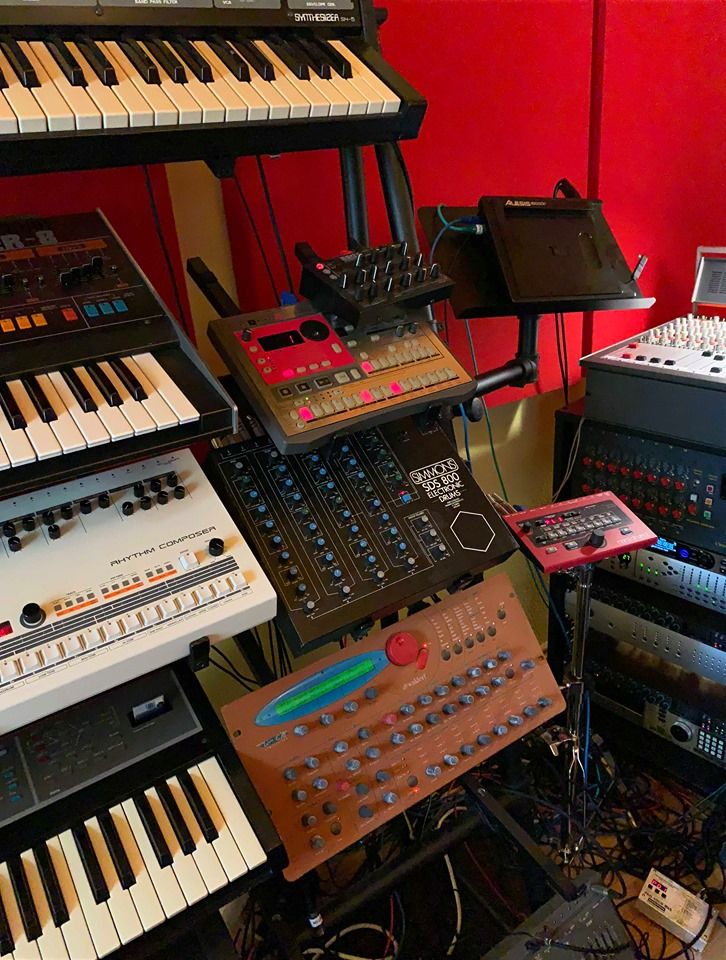
So you’ve talked about people putting labels on you and your music. Your discography in the past few years, there’s been acid, minimal, deep house. Some producers have one genre and one sound but not yourself. Have you tried not to be pigeonholed into one sound or has it just happened naturally?
Actually, what I realised with people is that it can be whatever genre but people close to me do say “This is your track, it’s a Shonky track!”
For example, the other day, a friend of mine uploaded a video of a DJ playing and said ”Is this your track?” and he didn’t even know it was mine! I know what you mean, it’s a bit of everything, but people have always told me there’s a Shonky feel to it. Perhaps it’s more the mistakes I make and the way I work through tracks and this makes your own sound. Maybe it’s because I’ve worked in a certain way that people have recognised it. Who knows?
But yeah, I have been doing a lot of different things, you do get influenced by current releases. If it’s a bit more techno then you’ll end up leaning towards techno in your sound. I have to say though I’ve never done a copycat of something.
In terms of my own tracks, I don’t think they were ever too techno, too housey or too minimal, I think they have this groove but I think it’s a similar groove because of the way I work. I’m just repeating what people tell me, really.
I was reading an old Resident Advisor interview you did back in 2008, around the time of your first album ‘Time Zero’. Back then you’d just moved to Berlin, you were going to parties and coming back inspired and making music. I imagine that doesn’t happen as much now so what are your external inspirations for making music?
If we go to a festival or something, I like to stay a bit longer and check the other stages for DJs, I’m influenced by the music other people play. I listen to a lot of general music actually, hip-hop or whatever, I listen to everything and pick ideas from there.
I try to be as curious as possible and I try to keep my ears open. Any time there’s an idea for a sample or something I try to listen, like even how bands from the early ’80s or ’90s were doing their mixdowns or something. I’m always trying to investigate music to make my own music better and be as curious as possible.
I’m also into this thing called ‘Mix With The Masters’, it’s a few guys who are great mixing guys who show their mixdowns to their audience.
Is it a YouTube series?
Kind of but it’s more professional, you need to subscribe but they give you a lot of tricks and tips. It’s big guys from big studios and bands. There was one guy the other day who was working with Erykah Badu and others who’ve worked with Pink Floyd or The Beatles.
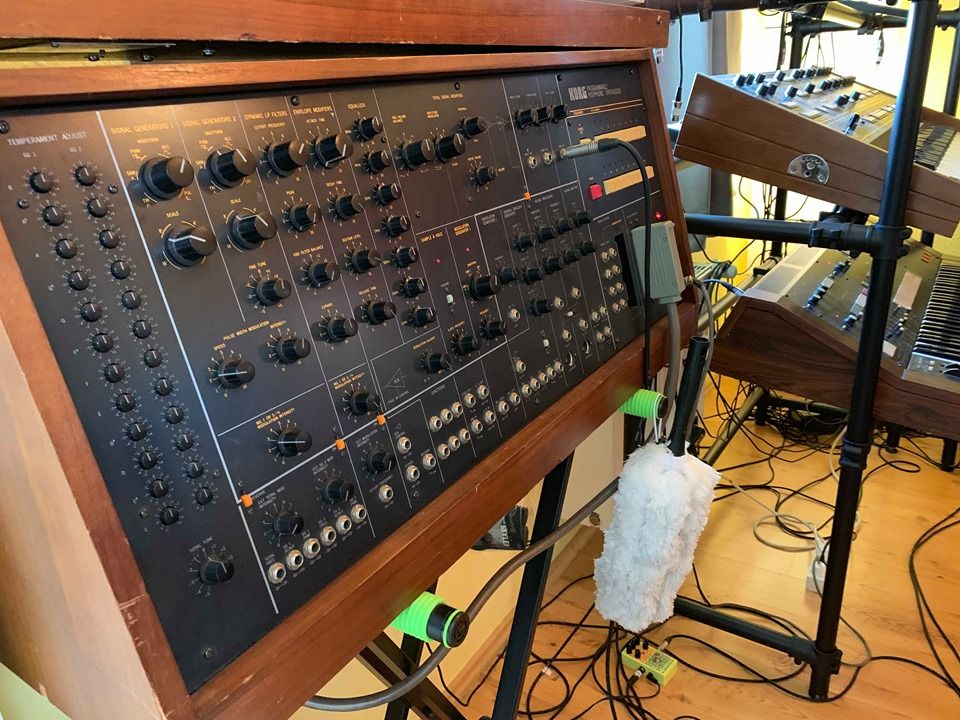
You also said in that interview you wanted to make deeper music, do you think you’ve taken steps towards that?
Yeah, I have in terms of how I create music with analogue gears and because I can play with synths, this is something deeper. At the time of Time Zero, it was more techno, minimal techno-y, the album is one sound, you know? I wanted to move away from that sound, keeping some of the best aspects but move away in general.
I also wanted to be more diverse in the styles and in the grooves, in the drums. At the time I was really only using the same drum machines, the same bass or the same musical patterns. Now sometimes I can use the MPC 3000, I can use the Korg KR-55, I like to use everything! Then, of course, it’s layers of musical elements that have been done by me.
For example, my last few EPs, when I’ve had say, four tracks, I’ve wanted four different tracks so I’ve tried to explore my studio and sound in a deeper way. I’ve been going more in this direction for sure, yeah.
So it wasn’t about creating more emotive ‘deep thinking’ music, but deeper in the way the music was produced?
Yes exactly, but I would say the two are intertwined.
Is Can Pep from SHNK000 one of those ‘deeper’ tracks?
Yup, all thanks to the Mini-Moog.
And Ninouchka from SHNK111?
I made that track last December before Christmas actually, I was going to leave to go to Paris to see my parents. I was working like the way I showed you, just playing around with the keyboards, etc and the track sounds so organic. It’s a different track from the rest of the EP but I was happy to include it because it’s more melodic, I feel it’s a bit more musical.
So how do you look back at Time Zero?
Back then I was working with samples and I actually felt like I needed samples to work, I got stuck in this. I lost confidence in myself a bit to work with synths or writing my music in general. I was working a lot with samples and after I did the album with Dan and Dyed [in 2013], I was afraid to go back to the studio a bit. I thought “I don’t have samples but I want to find a way not to be stuck without them.”
I was talking with a friend and he introduced me to the Minitaur, which is a bass synthesizer by Moog, I tried it with a sequencer and thought “Wow!”, I started to use it with my MPC 3000 and then I moved to the Cirklon because I loved having a sequencer and it’s just changed the way I work.
Do you link with friends a lot in your studio?
Not too much unless we’re very close. A wider problem is I realised slowly that I don’t want to be the engineer to someone, engineering other people. Let’s see in the future but for now, it’s not that something that gives me a lot of excitement. We could do a track together and you give me an idea but I’m only executing your ideas and that’s not how I want to make music.
So how does it work making music with Dan and Dyed as Apollonia?
It’s cool, it’s cool. We did the album together and I have also worked with them separately. It’s nice because we have a lot of common taste and we share a similar vision of creating music. So when we’re in the studio together, we know what we like and what we don’t like. It was the same when I was working with Jennifer Cardini in 2006. We did some releases together even though we had different musical roots but we matched pretty well.
So it’s not always that you have to match and have common routes, she was bringing her touch and I was bringing mine. The Cardini and Shonky touch! So it worked really well. I have no limit with who I want to work with, they don’t even have to want to make the same music as me, I appreciate what the person is doing and it is nice to explore a studio with someone, expanding your ideas about which gears can do what.
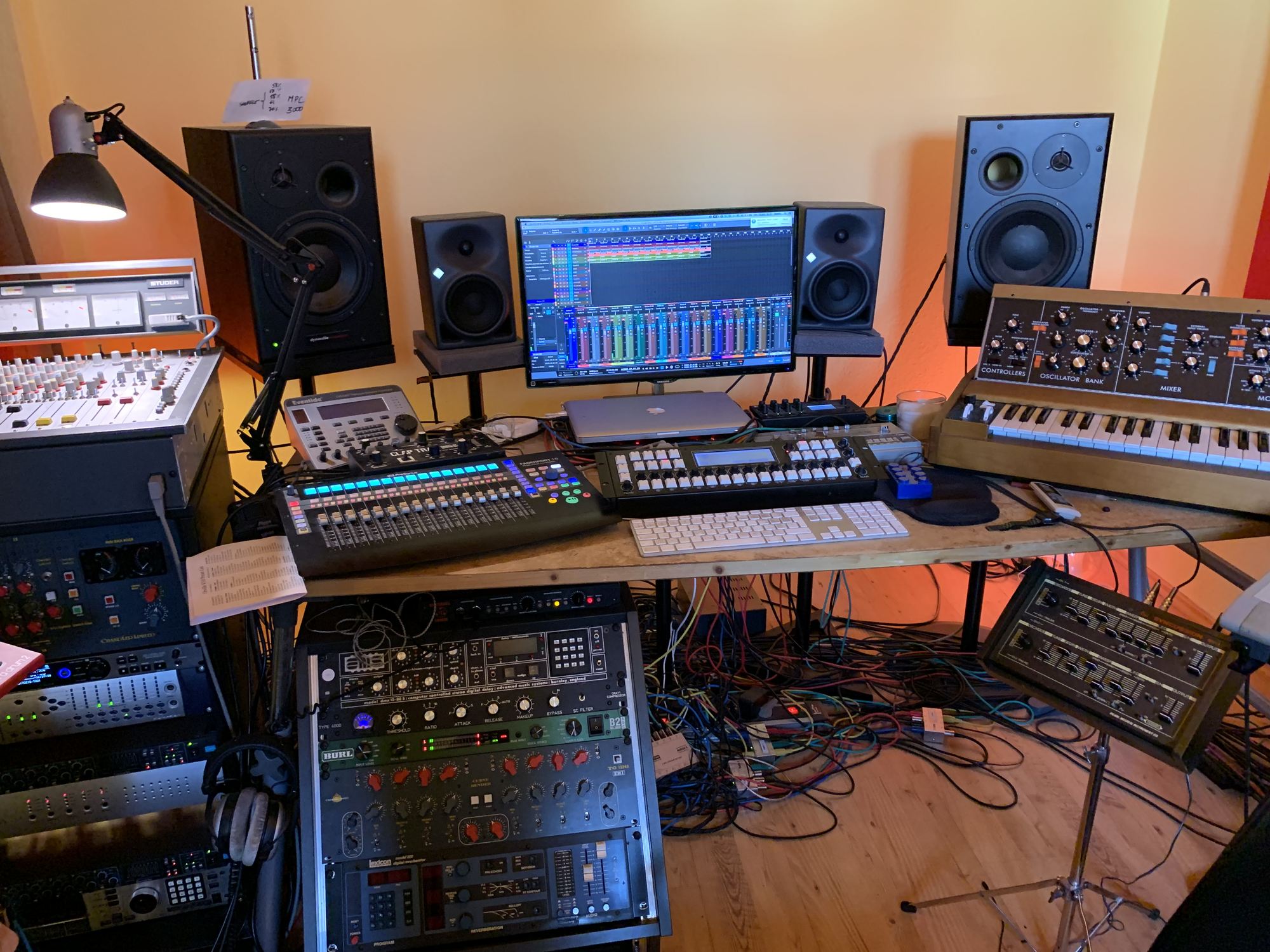
I heard Dan and Dyed moved to Lisbon, do you still get a lot from living in Berlin?
I’m good in Berlin. I moved here 12 years ago, I finished my first album in Paris, I only decided to move to Berlin when I was travelling to gigs a lot or making enough to live off music.
I fell in love with the city, the city was peaceful and also the freedom here. I didn’t really notice it at first but when I went back to Paris. I started to appreciate Berlin for those things. This rhythm of life really works for me. I still love this city. I’m in a good situation, I have a nice studio with my flat downstairs.
The first problem was I wasn’t sure how long it would take to have this level of comfort in a studio in Lisbon. Secondly, I fell in love with music gears and Berlin is really good for repairing old gears and servicing them. So I’m happy here.
Do you rotate your synths much? Sell ones you don’t use and use the money to buy new ones?
Not really, I like to keep everything. I like to collect and they’re all taking in a lot of value anyway. If I cover one up and sell it in five years, it’ll be like twice the price. The boom of the synth, it’s too much. The EMS is priced between 10-15,000 but it was 1,000 15 years ago!
What’s the advantage of old synths over new ones?
Nothing, well not nothing. I’m not really a tech guy but they made them with different chips and they’re cheaper today because the components are cheaper, then the sound isn’t as organic, for me anyway.
You have a lot of good synthesisers out there, the Moog One for instance. But with old synths, you have this kind warmth to the sound and I like the collecting aspect too. These synths here aren’t all necessary! I already have too much but I like all the options and I just get more pleasure from this way of working rather than the plug-ins.
The plug-ins aren’t so fast to work with, you have to open the plug-in, modify etc. But working this way it’s a lot faster. If you were working in the studio with a synth and you knew all the parameters, you could put them in your plug-in, put them in your synth and you would probably arrive at the same sound and you wouldn’t really notice it in the mix.
So it’s more of a quality preference?
Not particularly. I just love them, I love the sound. I think you can accomplish anything with anything in music but what I like with old gears is the randomness and straight away you can hear the sound changing as you play keys and experiment with the features, which isn’t always the case with a plug-in.
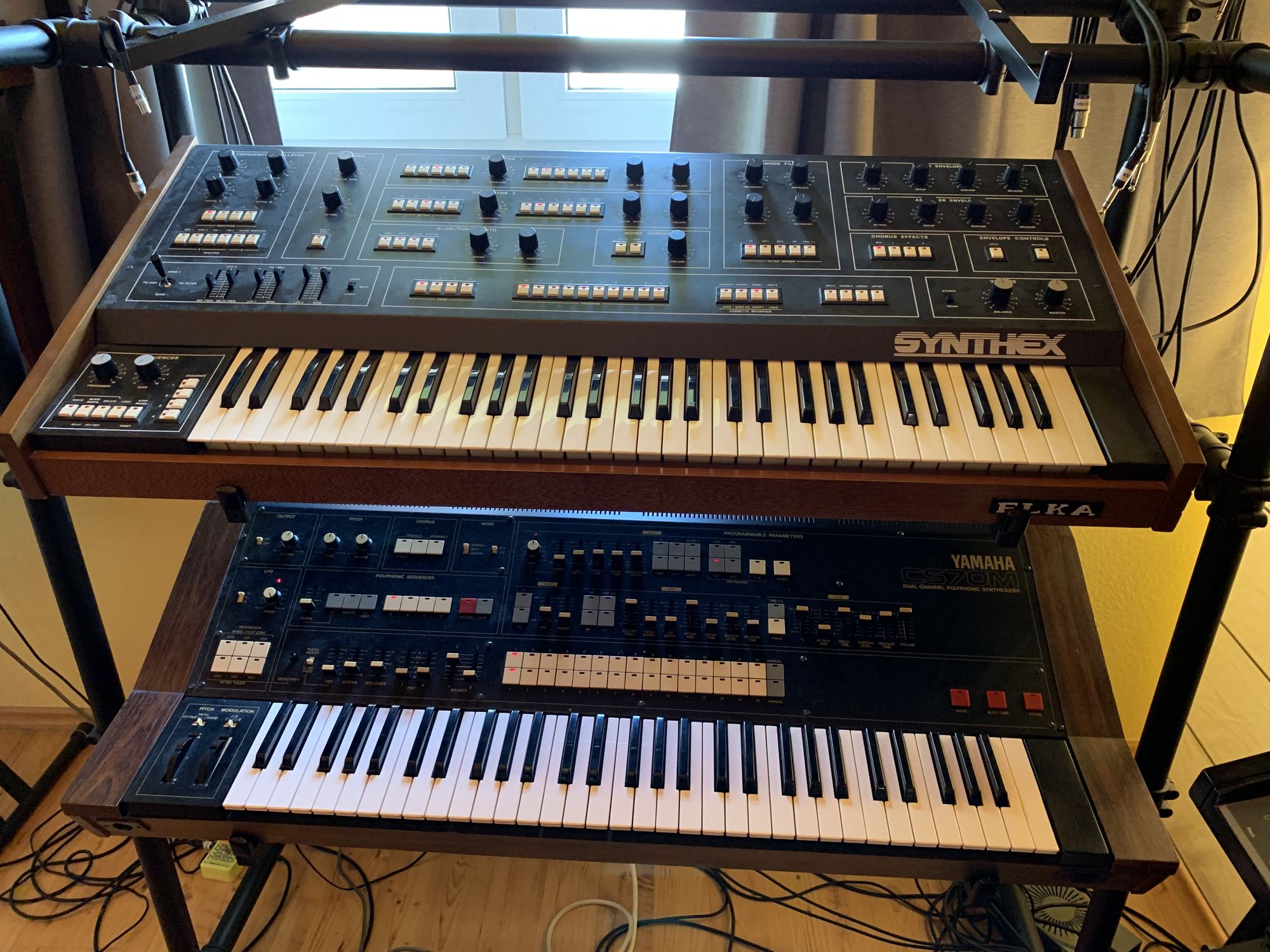
When you get a new synth or gear, are you a manual reader or do you just figure it out on your own?
I always take time to buy a synthesiser, they’re usually old school besides one in my studio which is more recent. All of them I’ve waited a while for them, so before I get them I know about them and then I service them, I’m reading the manual also. Then when I get it, I have a decent understanding of it. There’s a little bit of time to get into it but then it’s okay.
I just ordered a Yamaha CS-30, I love the sound of Yamahas. It’s a complicated synth, I don’t know where I’ll put it. I don’t like to intellectualise too much, I get in the studio and I’m twisting the knobs and trying to find a cool result. I like to work where I don’t ask myself too many questions because of my workflow, I can lose one day to do a track. Even now just showing you around my studio, I’m learning.
Aside from the ‘One track a day’ idea, what’s your workflow like generally?
I like to get into the studio and just try to find something interesting through my gears. A nice bonus of the analogue set-up is that I can do a lot of jumping around from synth to synth, seeing what sounds good and what doesn’t.
I’m looking for a pad or a general groove that I can build a track with but I am never sure where it will come from!
How much are you using friends for feedback on your tracks?
Quite a bit, I send stuff to friends and I’m always trying stuff out in clubs to see what works and what doesn’t. Usually, it’s Dan, Dyed or my booker, it’s nice to have different opinions from people with different backgrounds, whether they’re a DJ or not. I take on board every opinion from everyone who I send music to. Not every opinion is a good opinion, but every opinion is worth hearing.
So when did you start to transition from digital to more analogue work, was it a slow process?
It was a slow process for sure. I always wanted to integrate gears in my studio and the first thing I integrated was the Roland SH-101 in 2007. At the time, the problem was that it was a bit complicated to integrate analogue gears into a digital environment, it didn’t really work the way I wanted.
I integrated the Juno 106, MPC 3000. I did all my drums with the 3000, the bass with the SH and some pads. Slowly, I had gears in my studio and I’ve bought a lot in the last four years or so.
Watching you jump from gear to gear it seems like you could play live if you wanted. Is that something you’ve ever considered?
Never. I can’t really get excited about it, I don’t know what I could bring that would be interesting.
Most importantly, I never wanted to force myself to do something that I didn’t want to do. That was my vision from the beginning, I was studying mathematics and I decided to jump into the world of music and give myself a chance to try it out. From then, I only wanted to do what I wanted to do and not force myself. Now if I don’t want to go to the studio, I don’t. If I don’t want to listen to music, I don’t.
When you start to make music, you are this kind of machine and you can do music 24/7. Later on, you lose a lot of creativity as in you start to be pickier about what you’re creating. You need to create a moment to be creative, you know? For me, I wanted to create an environment where I can work fast. For example, if you leave later, I’ll have a snack and work in the studio for five hours, or perhaps not. For me, it’s all about flexibility and choosing what I want to do and when.
Usually, I have three days a week and I try to work within those. I try to organise myself the best I can so when I’m in the studio, I’m effective.
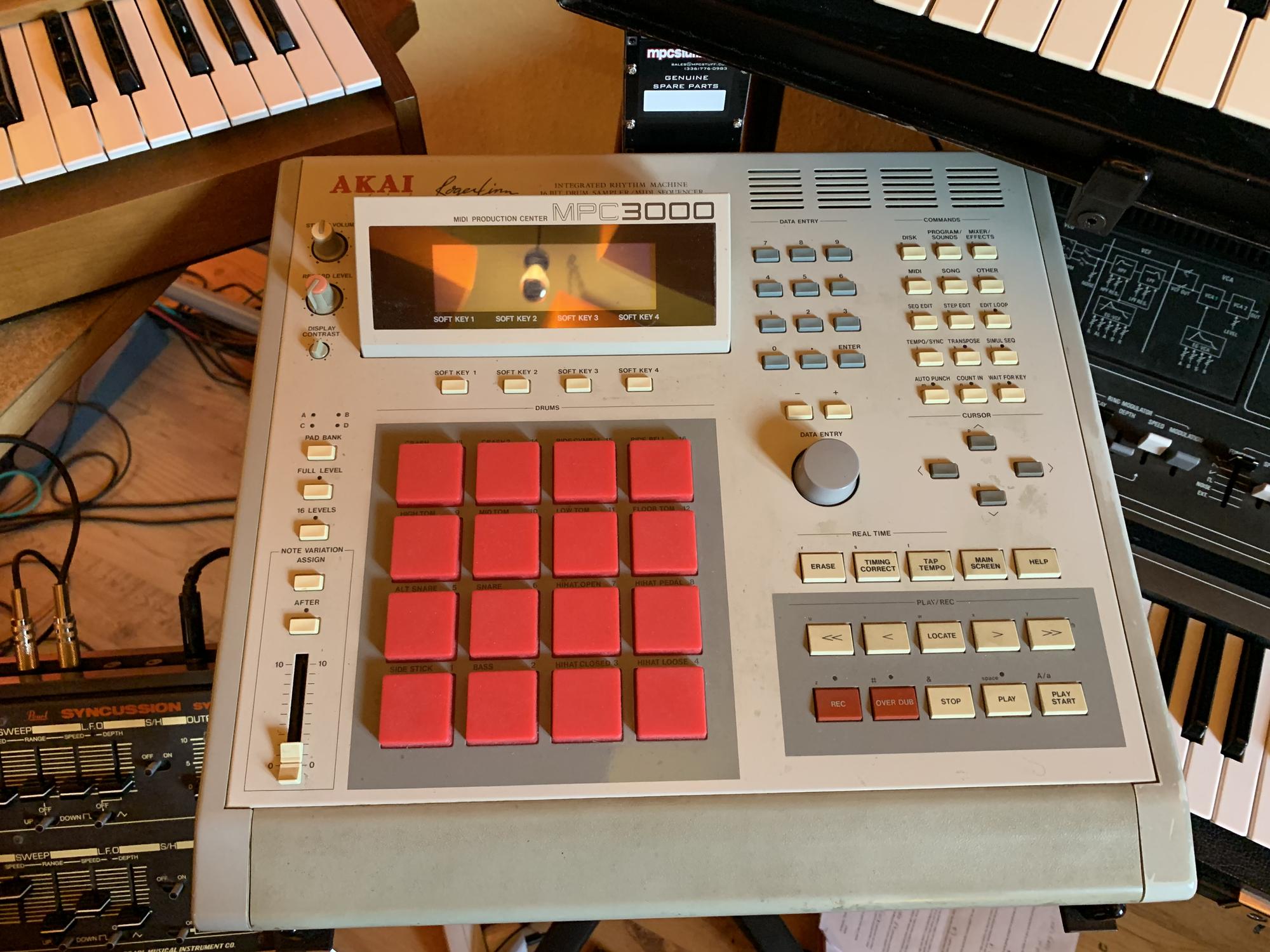
What are you like with releasing music? I imagine you have hundreds of files but do you purposely try to hold music back before releasing it?
Lately, what I like to do is do 20-30 tracks, I then send them to people, they take one or two and then I do new tracks. The rest I just leave on my computer or maybe revisit them later on. I try to keep it fresh, freshness is a big thing for me. There’s also always delays with vinyl processing so it may seem like I take a while to release tracks, but it’s not me!
Usually, those 20 tracks I made are in the same vein, so the next 20 will be a little bit different, using different gears or something.
The acoustics of your studio, how did you go about installing all the features and discovering what you needed?
People were always telling me that I needed nice acoustics in the studio before nice speakers. When I moved into this studio, I was like “Well it’s time to put some love and energy into the acoustics”. The first thing I did was the album for Apollonia so I wanted good acoustics for that.
I have four sound panels on the wall, it was important for me to have good acoustics, lighting, etc. I don’t really want natural light in here, I have a light that can change colour to create different vibes, it’s nice. Now I get into this environment and it’s nice to work here. I want to be comfortable to make myself more effective to make music.
It seems like you’ve covered basically every detail that can help your workflow.
For me, it’s most important to make music in a place where I feel most comfortable. The way I can do a track every session means I can explore different directions. The problem is if I do one track a week or one track every two weeks, I end up putting pressure on myself. At the end of the week, you’re not even sure if the track is good anymore!
When you do one in the morning, finish it in the afternoon then I can try different things. It’s more of a ‘go with the flow’ feel whereas before I was like “No! I need to do a club track and it must sound like this” now it’s more me exploring which directions I can go with my gears and my studio. I love it.
I just want to be more effective, you know? As I told you before. I don’t have a lot of time. The older you get, you are not as creative as in the beginning. You need to help yourself and put yourself in positions for maximum creativity.
It seems easy to get into your workflow for sure.
I mean, I could have said to you “Have fun on the sequencer!” and you could be there for hours, there are just so many options. For example, if you add a hi-hat or a clap, you can add a little delay for all of them so you can create a groove just within the hi-hat. You can get it to play one particular note once every two bars or play 80% of the time and it adds a lot of randomness to it.
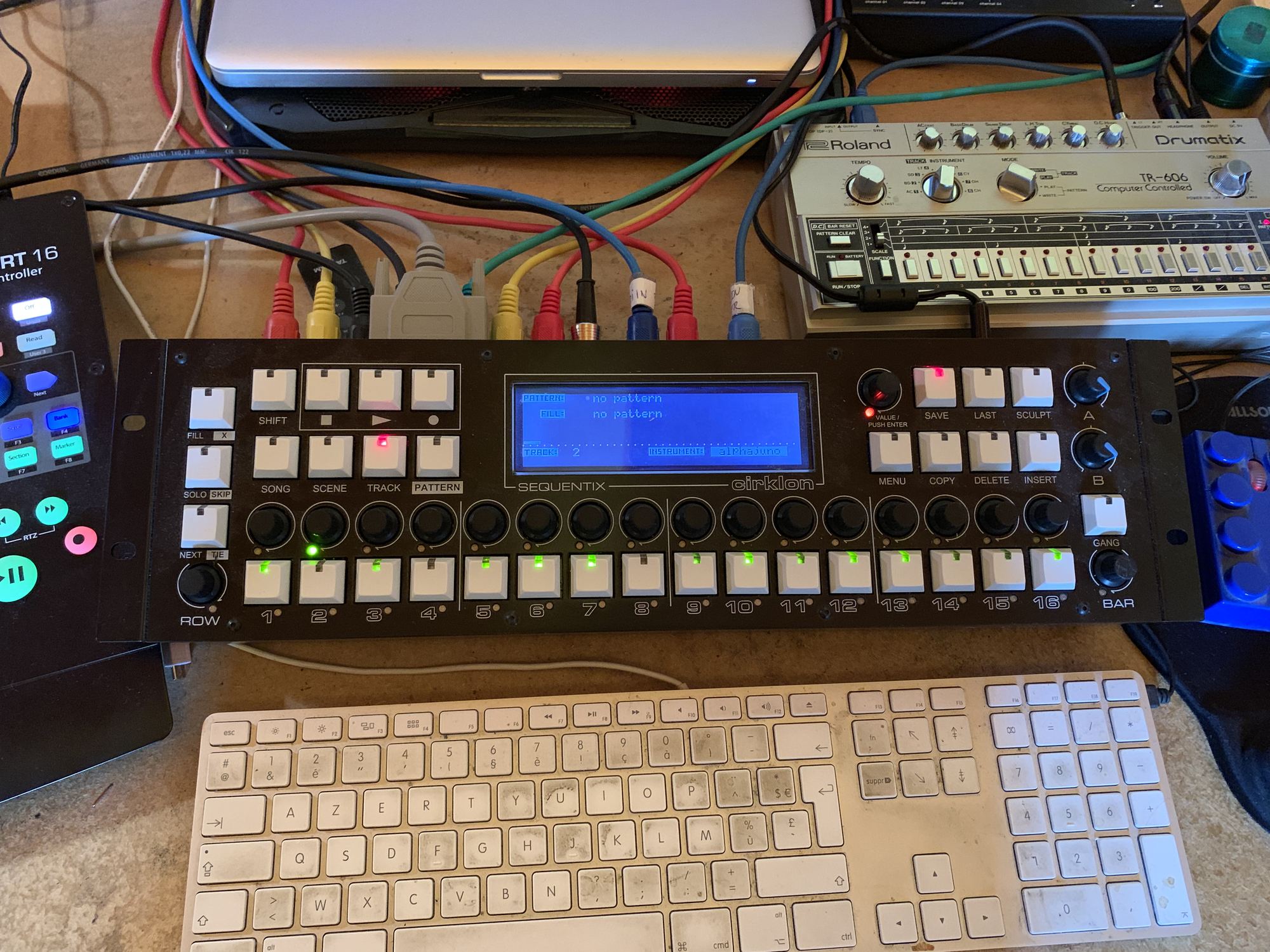
Could you explain a bit about how your studio is linked?
I don’t really like to have a mixer, I like to have all the gears plugged into my soundcard. I have 48 in, 48 out, I don’t have enough as I have too many gears! All my drum machines are linked to the Studer 169, it gives a nice character and a really nice EQ, then they go into my computer. I have a lot of old school machines, and because they are old, they cannot sync with my computer so they go through the Cirklon as well as my synths.
One good thing you can do with the Cirklon [Sequencer], you can change the note, reverse the sound, alternate between two sounds. One great thing it can do is put all your notes in one scale, so they’re all in major or whichever you need. But it won’t just be for say, the Mini-Moog, it’ll be for all the synths. Now if I go to Jupiter-8, it’s in the same scale. It’s a really fast way of working. The only problem I have is sometimes it sounds a little bit too sequenced when I work this way.
If I put myself in a different scale and pattern, I can go play a different synth and it’s automatically there. Another advantage of working this way is the synths can play at a different velocity and you can edit the lengths of pads, which makes the sounds a lot more organic.
When everything is done, I like to do some treatment with the Cirklon. I also do some treatment with my Lexicon 200 to add some reverb, the Curve Bender EQ which is like a master EQ, I have a compressor which I love to use on my master, it’s a clone from SSL. My AMS-DMX is also really nice for harmonizing and delay.
It seems like the sequencer is central to your studio. At what point did you incorporate it into your studio?
Seuil one day told me “You really should get this!” For me, it was very opening, it just gives you so much control, just changing the note to the precise note you want, it’s a life-changer. It adds a lot to my process and I do everything in the studio with the sequencer.
I have the Cirklon, which is my sequencer, it’s really nice and I can control anything in the room through it. I try to make a lot of connections between all my gears. For me, the more time you spend on the techniques, well, the less fun you have first of all and you lose your creativity a bit I think.
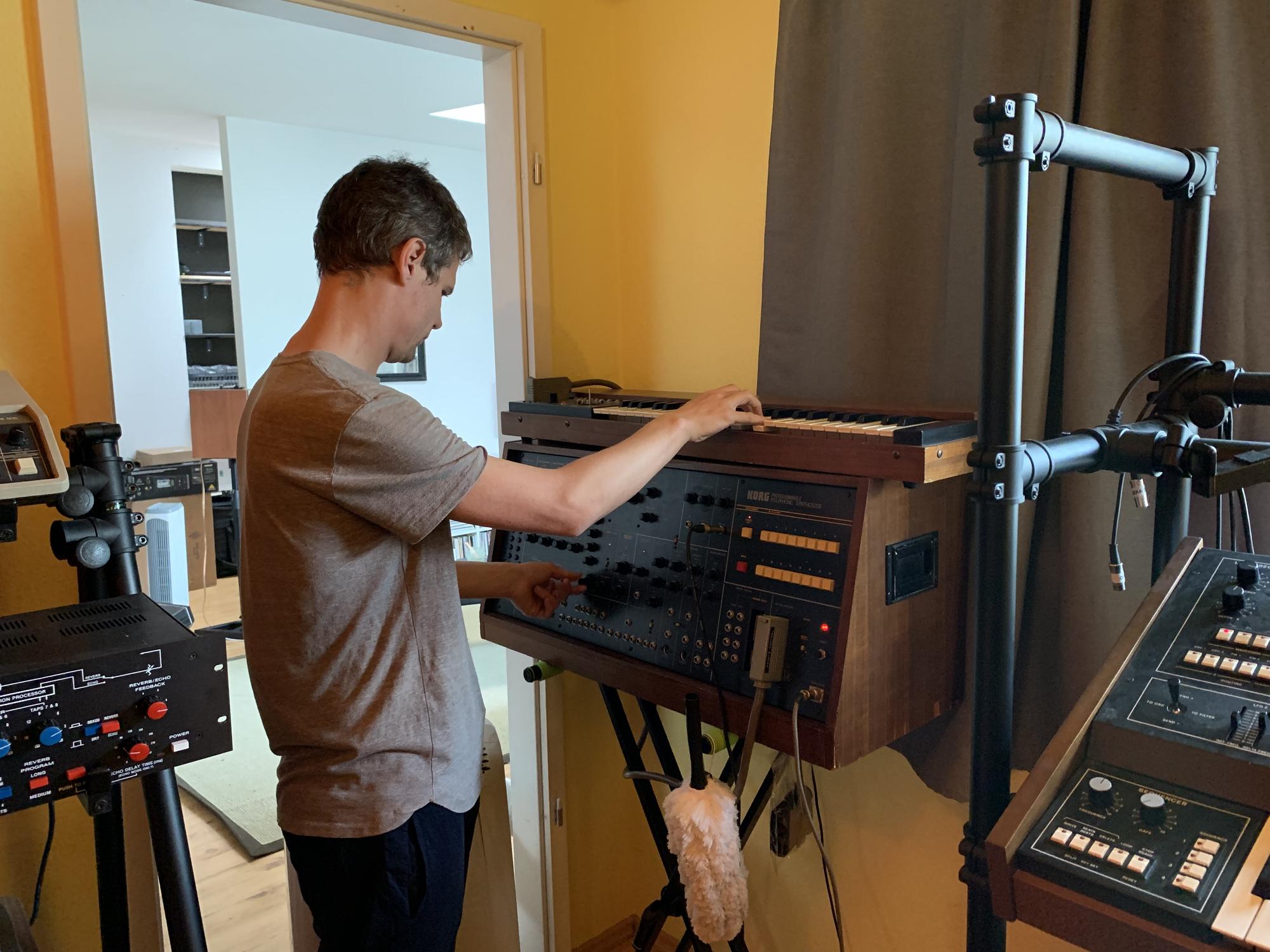
One of the things I noticed when you were jamming was that the possibilities were endless. Is that something that still gets you going about electronic music and working with analogue gears, is that it’s endless?
Yeah of course but it’s also a reason I like to keep my set-up relatively simple. I like to evolve my set-up naturally, I don’t want to repeat the same methods. I like to get one set-up, work on it for six months or a year then move onto a new set-up. Six months from now, I might have moved on from the Cirklon!
So is it a bit of a rabbit hole?
Yes sort of. People close told me “Don’t buy too much because you’ll get lost’” My principle was “I have one new gear, I’ll do one new track with it”, I could push the synths really deep, I haven’t so far but I know how to use them to make a track.
Have you got any big studio projects coming up? I mean a lot of people do albums quite a bit later in their career but you did yours quite early. Is another album a possibility?
I don’t know, perhaps it could be interesting. For me, an album needs to close a chapter of a period. For me, Time Zero closed the chapter of that kind of sound, if I did another album it’d be when I’m more in control of my studio. When I would be able to do slow tracks, fast tracks, but for a proper reason, not just because I want to do an album.
I’ve never been too sure that the album format is a good format for electronic music. The music I do is a lot of 4×4, it doesn’t need to be in an album, does an album need an ambient track? I don’t know. I’m still asking myself these questions, “How can I make an album good?” I don’t want it to be just a series of EPs put together, you know?
I think it’s important to always change your stuff, to discover and explore. It’s the purpose of electronic music, to find new sounds. For me, electronic music is like a laboratory and you have to experiment to find out what works.
More info on Shonky
Facebook | Resident Advisor | Discogs



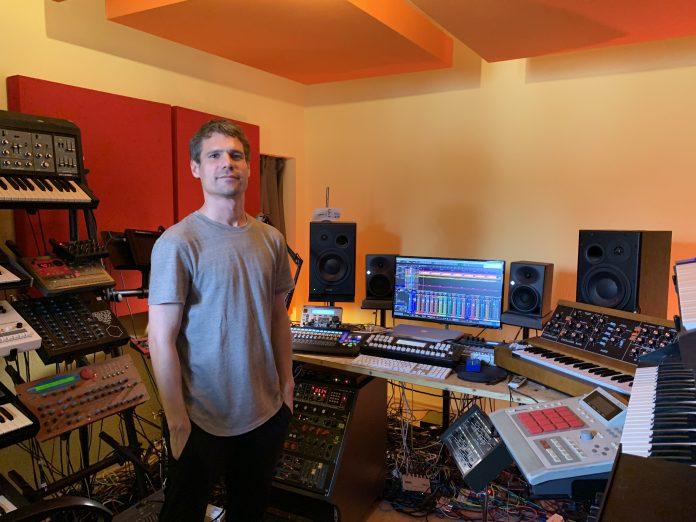
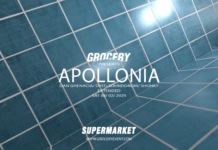
![Premiere: A1 – Shonky – The Way It Goes [WB029]](https://trommelmusic.com/wp-content/uploads/2024/09/1080928-218x150.jpg)

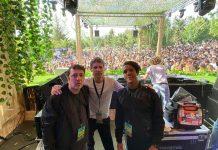
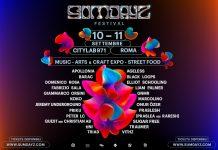
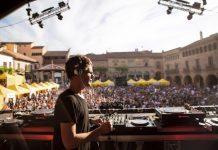
![Premiere: A2 – mrelss – Season of Reason [AMAM044]](https://trommelmusic.com/wp-content/uploads/2026/02/label_side_A-Alessio-Mereu-324x235.jpg)
![Premiere: 2 – Santon – Only a Test (Alain de Saracho Remix) [SDR012]](https://trommelmusic.com/wp-content/uploads/2026/02/Santon-Only-a-Test-EP-Artwork-Alain-de-Saracho-100x70.png)
![Free Download: Zombies in Miami – What Ya Doing [TFD128]](https://trommelmusic.com/wp-content/uploads/2026/02/photo_2026-02-12-10.38.24-e1770892750337-100x70.jpeg)
![Premiere: 1 – DAT (Italy) – Not My Plan [SENS001]](https://trommelmusic.com/wp-content/uploads/2026/02/IMG_9750-Sensazione-Stupenda-100x70.png)
![Premiere: B1 – Kolhida – Break And Escape (Cezar Lazãr Remix) [TTM003]](https://trommelmusic.com/wp-content/uploads/2026/02/IMG_2883-Aleksandr-Gocheleyshvili-100x70.png)
![Premiere: A1 – JJ Fortune – Design [LNS10]](https://trommelmusic.com/wp-content/uploads/2026/02/1188556-100x70.jpg)
![Premiere: A1 – Alexander Skancke – Saga Of Subvision [QRK015]](https://trommelmusic.com/wp-content/uploads/2026/02/photo_2026-02-03_17-31-24-100x70.jpg)

![Premiere: A1 – Light Blue File – JUNIOR [RCR002]](https://trommelmusic.com/wp-content/uploads/2026/02/RCR.002.FRONT_.LABEL-Will-Gilliland-100x70.png)
![Premiere: A2 – Lisovskyi – Just One Good Whiff [FIB004]](https://trommelmusic.com/wp-content/uploads/2026/02/B-100x70.png)